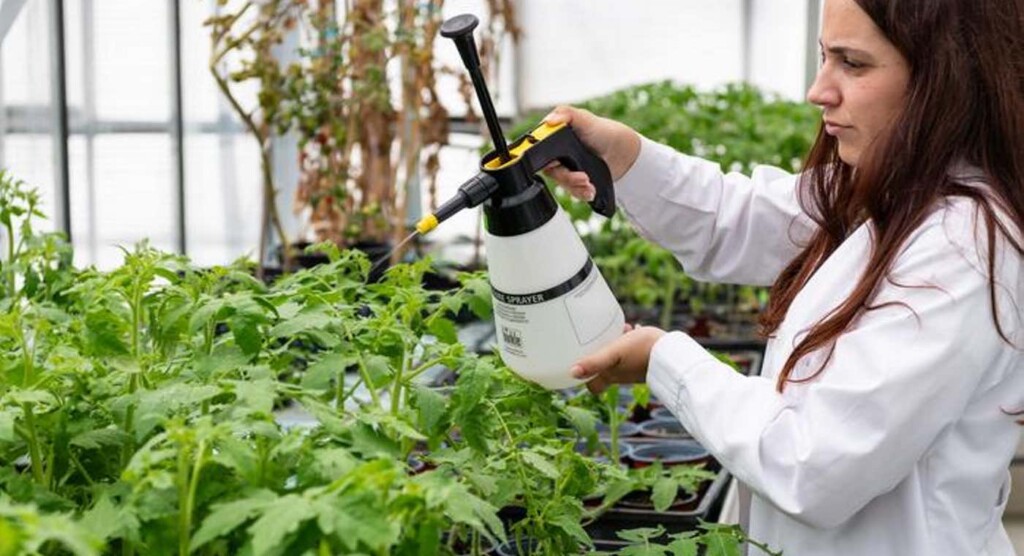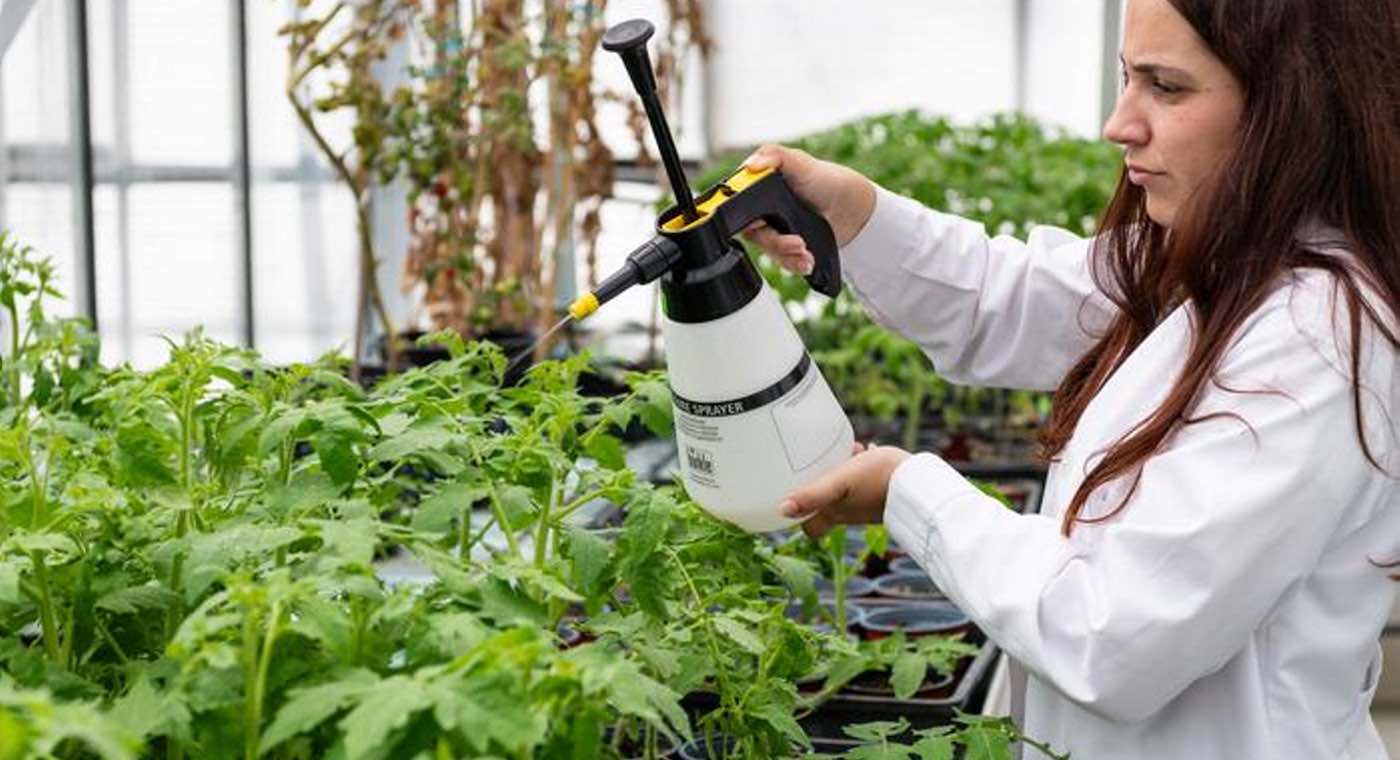
A new spray that protects tomatoes from a deadly bacteria has been dubbed the ‘aroma of resistance’ because it allows plants to ‘sniff out’ the danger naturally.
Spanish scientists found that an aromatic compound called alpha-terpineol effectively protects plants from Pseudomonas syringe, a pathogenic bacterium that causes severe damage to crops.
The research team calls it a “significant breakthrough” that could improve crop management by providing environmentally-friendly protection that is highly effective.
Study co-author Julia Pérez-Pérez explained that, like human interactions, plants have their own way of communication and self-defense. They emit volatile compounds to alert their neighbors to danger. The nearby plants use their sense of smell which perceives the message.
“Imagine a field of tomatoes where the bacteria penetrate the leaves of a plant through the stomata,” said Ms. Pérez-Pérez, a PhD student at Valencia Polytechnic University.
“As it spreads, the plant defends itself from attack by releasing volatiles such as terpene.
“Other parts of the plant itself and neighboring plants ‘smell’ this chemical message and quickly close their stomata, preventing the entry of the pathogen and thus protecting the crop.”
FREE FUEL FOR FARMERS? British Company Develops First Tractor in the World to be Completely Powered by Cow Dung
The same research team, partnering with the company Meristem, has already patented and licensed another volatile compound, HB, which also protects plants.
“Both compounds are part of what we call ‘the aroma of resistance’, which symbolizes the smell of survival for tomato plants.”
She says it is a very simple, cheap, and natural application that can be sprayed directly on the plants or applied by diffuser devices.
Dr. Purificación Lisón, co-author of the study published in the journal Plant Physiology, said, “The use of these compounds offers the agricultural sector a new economic, fast, and highly effective alternative to improve the yield of such an important crop as tomato.”
The natural strategy could serve as a protective barrier against bacteria and other infections—and even protect plants from the effects of drought.
SOUPING UP SOIL: Recycling Wastewater Reclaims Valuable Phosphorous for Farmers to Put Back in Soil
Using the compounds in agricultural treatments would also reduce the use of chemical pesticides, according to the research team.
“This is not only beneficial for the environment but also promotes more sustainable agriculture,” said the University’s Dr. Pilar López Gresa.
A-Terpineol, a natural monoterpene, is also commonly used in cosmetics, soap, insect repellent (like limonene), and other household items.
HELP MORE GARDENS GROW By Sharing the Good News on Social Media…




















